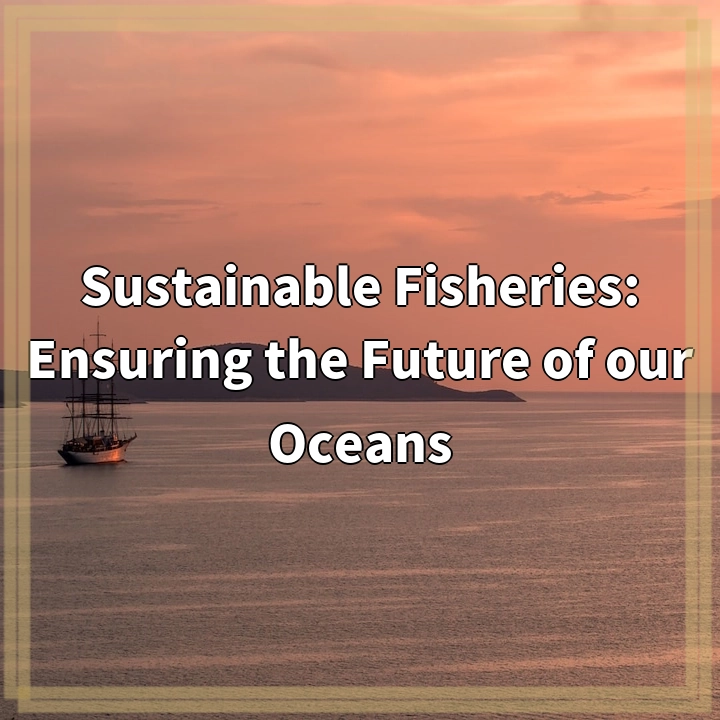Physical Address
304 North Cardinal St.
Dorchester Center, MA 02124
Physical Address
304 North Cardinal St.
Dorchester Center, MA 02124

Sustainable fisheries are crucial for maintaining the long-term health and productivity of fish populations and ecosystems. By implementing science-based management, enforcing fishing regulations, reducing bycatch, protecting marine habitats, and promoting sustainable seafood choices, we can address the real-world problems associated with sustainable fisheries and ensure the future of our oceans.
One of the biggest challenges in sustainable fisheries is overfishing. When fish are harvested from the oceans at a rate that exceeds their ability to reproduce, it leads to a decline in fish stocks, disrupting the balance of marine ecosystems and threatening the livelihoods of fishing communities.
Another significant concern is bycatch, the unintentional capture of non-target species. Dolphins, seabirds, turtles, and juvenile fish often suffer injury or death as a result, leading to ecological imbalances and the loss of biodiversity.
Habitat degradation is also a challenge. Activities like bottom trawling and the use of destructive fishing gear can damage coral reefs, seafloor habitats, and other essential habitats for fish and other marine species. This not only affects the targeted fish species but also has cascading effects throughout the food web.
Illegal, unreported, and unregulated (IUU) fishing further exacerbates these problems. It undermines conservation and management efforts, putting fish populations and ecosystems at risk.
Implementing science-based fisheries management is crucial. Thorough research and monitoring help determine the status of fish stocks, allowing for the setting of appropriate catch limits that promote population growth and recovery.
Strong enforcement and compliance with fishing regulations are essential in addressing overfishing and preventing illegal practices. Governments need to invest in monitoring and surveillance systems to detect and deter illegal fishing activities. Collaboration between countries and law enforcement agencies is vital in combating IUU fishing.
To minimize bycatch, innovative fishing gear and practices should be developed and implemented. Selective fishing gear, modified techniques, and measures like escape panels and acoustic deterrent devices can reduce the impact on non-target species, preserving biodiversity and ecosystem health.
Efforts to protect and restore marine habitats are crucial. Establishing marine protected areas (MPAs) helps conserve important habitats and provide refuge for fish species to reproduce and grow. Avoiding bottom trawling in sensitive areas significantly reduces habitat degradation and protects fragile ecosystems.
Consumer awareness and sustainable seafood choices play a key role in promoting sustainable fisheries. Purchasing certified sustainable seafood products, looking for eco-labels, and supporting local and small-scale fisheries that employ sustainable methods can drive market demand for sustainable practices.
By implementing these solutions and promoting responsible fishing practices, we can ensure the future of our oceans, the livelihoods of fishing communities, and the incredible biodiversity that our marine ecosystems provide.
Keywords: sustainable fisheries, overfishing, bycatch, habitat degradation, IUU fishing, science-based fisheries management, enforcement, compliance, marine habitats, consumer awareness, sustainable seafood choices
If you’re wondering where the article came from!
#